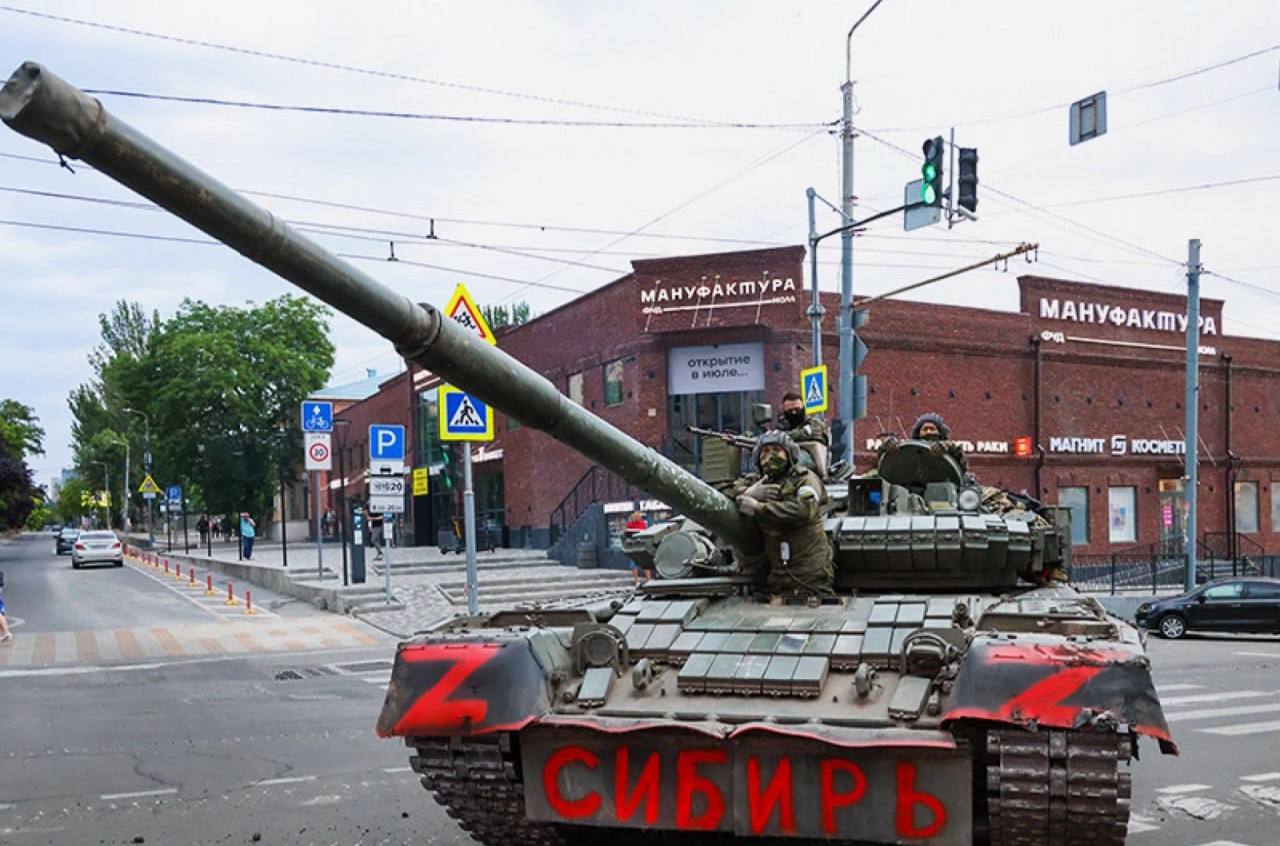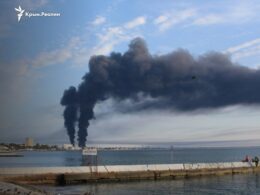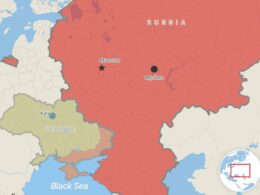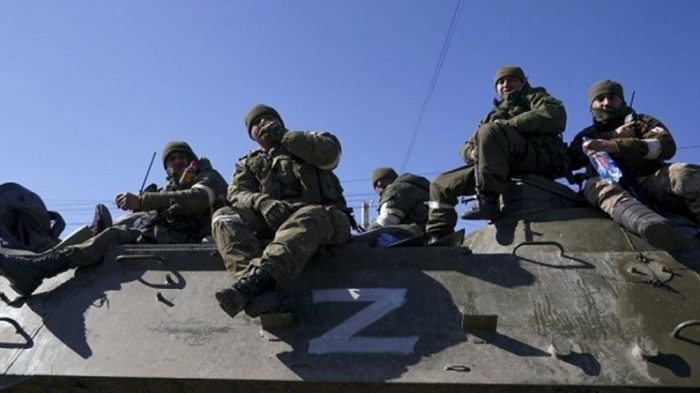The Ukrainian-Crimean Tatar partisan movement Atesh claims the Wagner PMC has set its eyes on "375 Object 'C'" near Borisoglebsk, Voronezh Oblast, corroborating earlier reports by the Gulagu.net human rights group
Atesh, a partisan movement of Ukrainians and Crimean Tatars that claims to have ensnared many agents within the Russian Army into its ranks, claims that the PCM Wagner, engaged in an armed rebellion against the Russian authorities, is preparing to seize nuclear weapons depots in Voronezh Oblast.
Citing its agent from the Wagner PMC, Atesh writes that Wagner's advance units have reached the outskirts of Borisoglebsk, Voronezh Oblast. The city hosts a warehouse with nuclear weapons, also known as "375 Object 'C'" under the 12th Chief Directorate of the Russian Ministry of Defense.
"It is unlikely that the Russian Army will be able to defend the depot on their own. There are very few forces and means there. A significant number of tanks, artillery, and motorized professional infantry are required. At least a brigade is needed. And since no troops are available right now, the only way to get reinforcements is to remove operational reserves from the front. Fighting for the Voronezh nuclear depot will probably lead to increased escalation of hostilities between the PMC and the Russian Ministry of Defense," Atesh writes.
This message corroborates reports from the Gulagu.net human rights project, which stated, citing its sources, that the Wagner mutiny was planned as an armed insurrection at least from the fall of 2022, and that Wagner plans to seize 12 objects of Russia's nuclear arsenal. Gulagu.net claims that the enigmatic Wagner commander Dmitry Utkin is responsible for this part of the armed mutiny.
Wagner coup was months in the making, Russia’s loss of nuclear control possible – Gulagu.net
What is Atesh
The Atesh movement, a Ukrainian-Crimean Tatar partisan group, was established in September 2022 to resist the Russian invasion of Ukraine. It consists of Ukrainians, Crimean Tatars, and even Russian individuals who have mobilized against the Russian army. This underground movement has been involved in various activities to counter Russian forces.
Notable examples include an online course for Russians to wreck their own military equipment in which 4,000 Russian soldiers had reportedly enrolled, blowing up a Russian checkpoint in Ukraine, and claiming responsibility on a hit attempt on prominent Russian propagandist Zakhar Prilepin.
Recently, an Atesh agent had raised the alarm about Russia planning to mine a titanium plant in occupied Crimea.
Wagner mutiny: what happened earlier
In the night of 23 June, Wagner financier Yevgeny Prigozhin accused the Russian MoD of striking a Wagner camp and announced a “march for justice,” vowing to “stop” Moscow’s top military leadership.
Russia’s official bodies denied any accusations of a strike on Wagner’s rear; the Russian FSB opened a criminal case against Prigozhin and Russia’s top brass called upon Wagner fighters to defy Prigozhin’s orders.
In the morning of 24 June, Prigozhin, who started his career as "Putin's chef," claimed control over military objects in Rostov-on-Don, a city that serves as the headquarters for Russia’s war efforts in Ukraine, stating that the Chief of General Staff ran away when he saw Wagner fighters approaching.
A conflict between Prigozhin and the Russian MoD has been months in the making, and Russian military leaders have sought to limit the role of the leader of Wagner, a private military company that has played a key role in Russia’s assault on Ukrainian cities.
Prigozhin had defied a demand by Russian Defense Ministry that Wagner Group members sign contracts directly, highlighting a deepening conflict within the Russian establishment. Instead, Prigozhin drafted
his own “contract” and said he was awaiting an answer from Russia’s military leadership for it. Meanwhile, the deadline for the volunteer fighters to sign contracts with the MoD, 1 July, “is likely to be a key way-point in the feud,” the British intelligence assessed.
Vladimir Putin has vowed to stop the "armed rebellion" of Yevgeny Prigozhin.
Wagner's columns are reportedly moving on Moscow after bypassing Voronezh.
The UK Intelligence has called Prigozhin's uprising the greatest recent challenge to the Russian state.
Prigozhin has refused to lay down arms and said that Wagner mercenaries were the true "patriots" of Russia.
The Russian media outlet Vazhnye Istorii wrote, referring to its sources in the Presidential Administration, that the Kremlin tried to negotiate with Prigozhin but got rejected.





